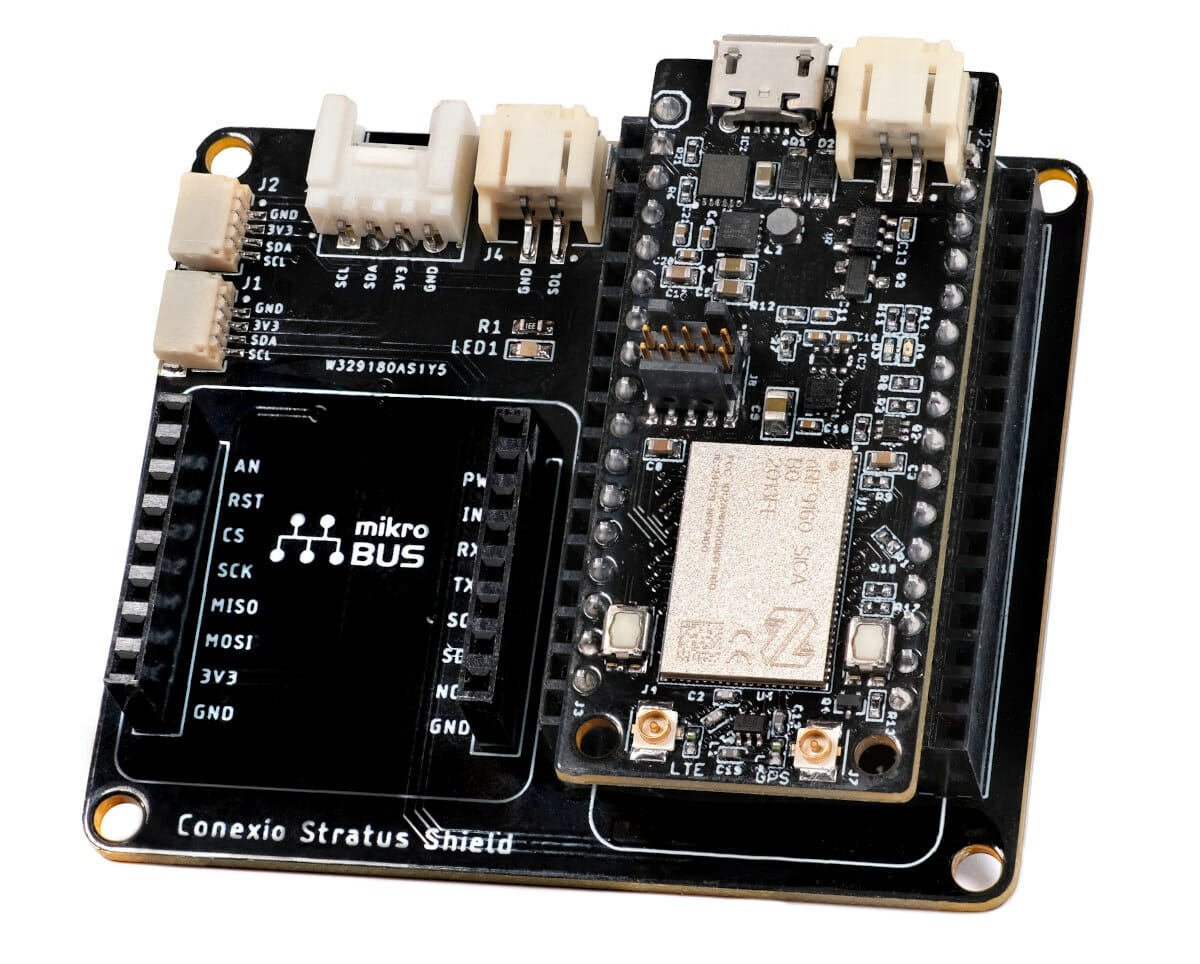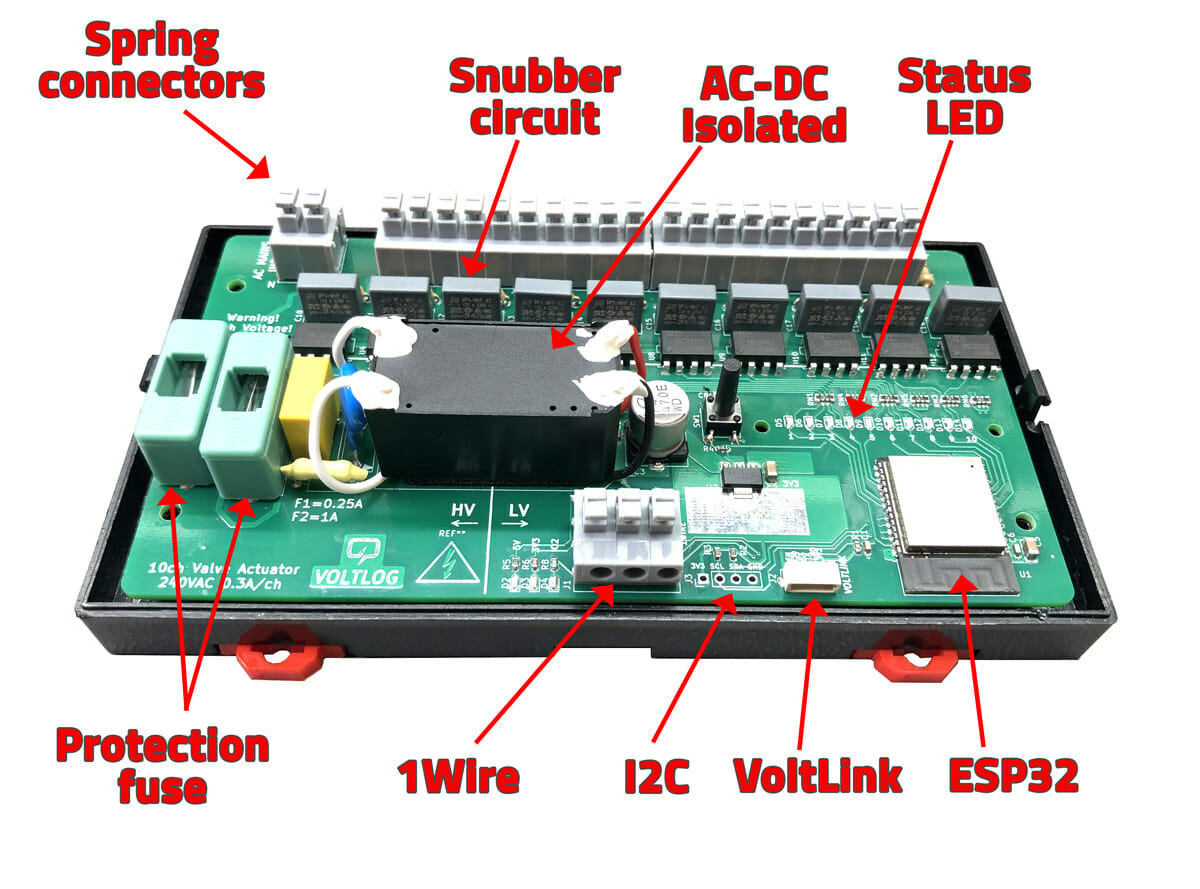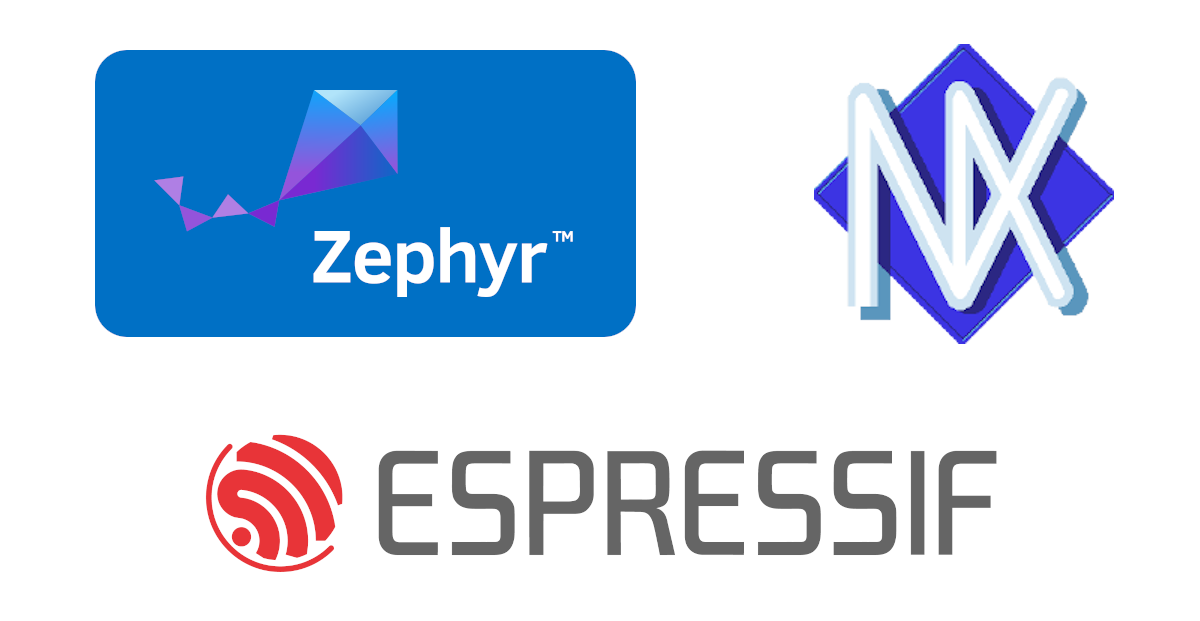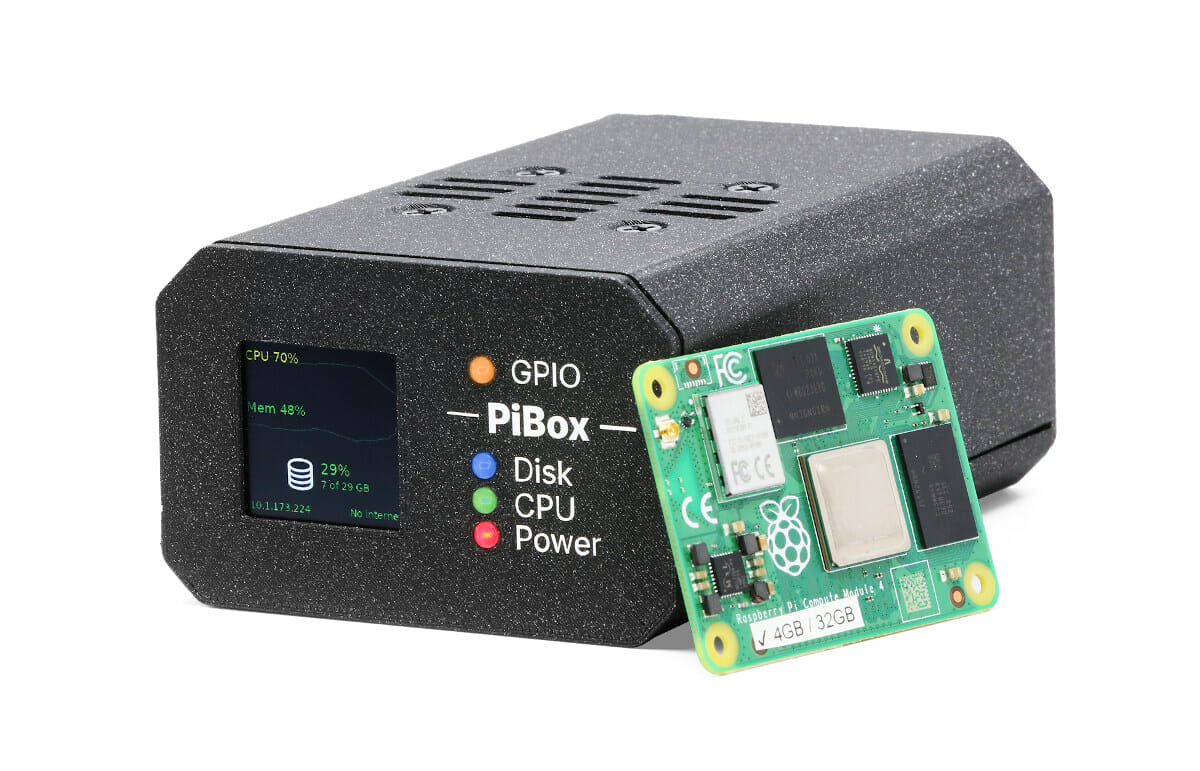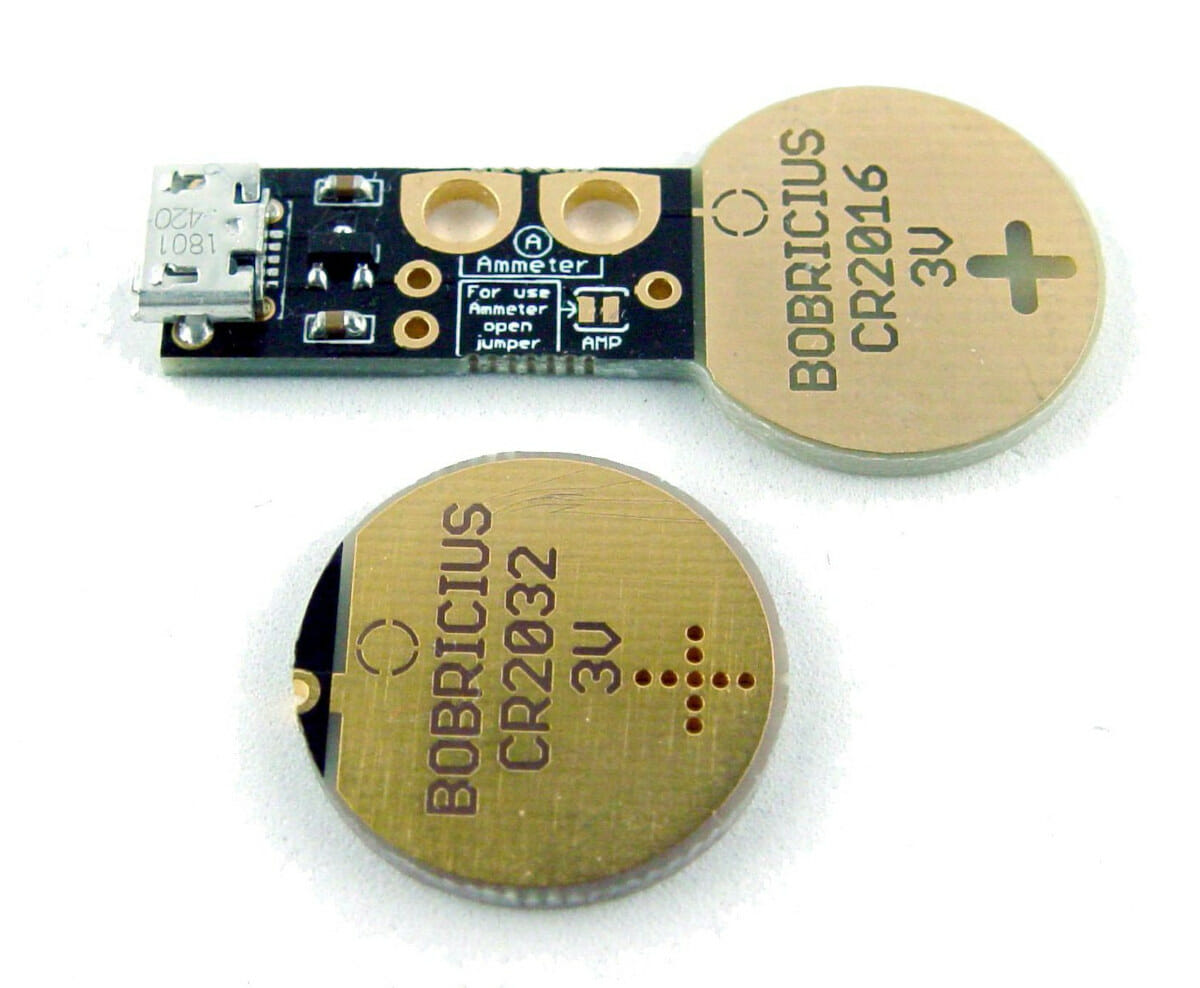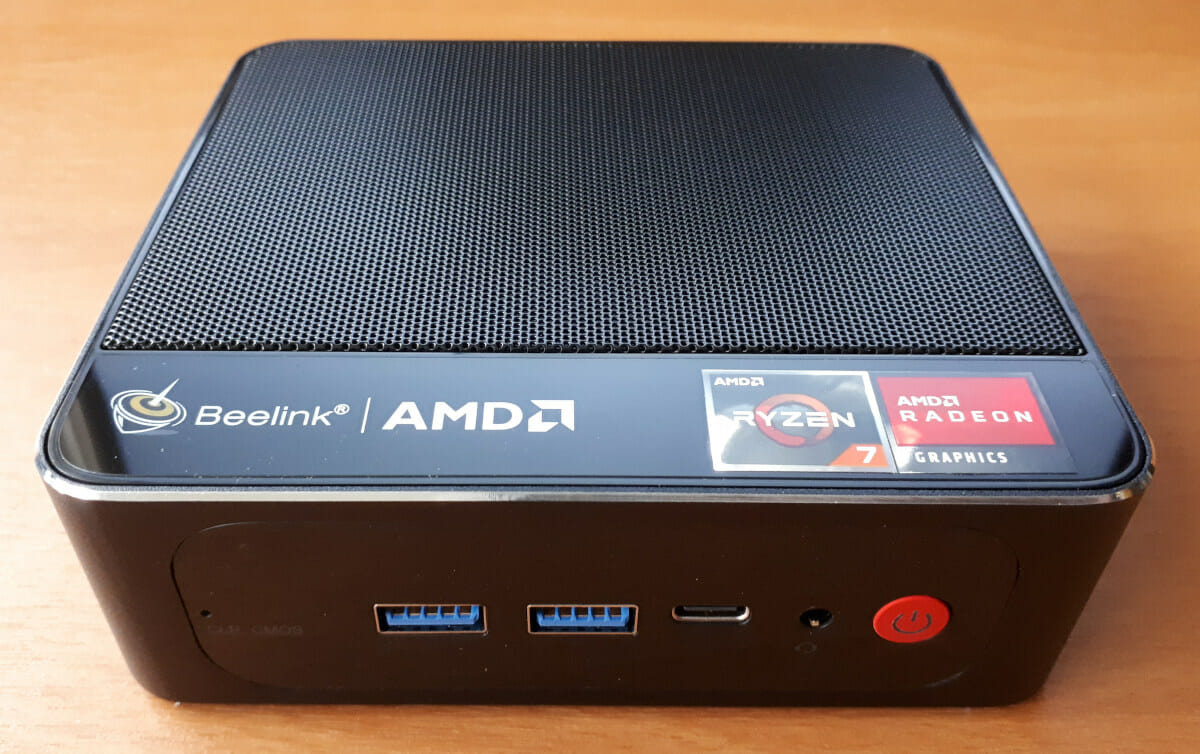Conexio Stratus board is equipped with Nordic Semi nRF9160 System in Package (SiP) with LTE-M (eMTC) & NB-IoT cellular IoT connectivity as well as GPS support through a pair of u.FL connectors for antennas, together with 500MB of mobile data valid for ten years. Designed for battery operation, the devkit comes with built-in battery charging, monitoring, and energy-harvesting circuitry, plus an accelerometer and a temperature and humidity sensor that makes it ideal for prototyping cellular IoT systems such as asset-tracking applications, environmental monitoring, and smart-meter monitoring, among others. Conexio Stratus board Conexio Stratus specifications: SiP – Nordic Semi nRF9160 system-in-package with Arm Cortex M33 MCU, 1 MB Flash, 256 kB RAM, cellular IoT modem, and GPS. Cellular Connectivity 3GPP LTE release 13 Category M1 and NB1 compliant 3GPP release 14 NB2 compliant RF Transceiver for global coverage supporting bands: Cat-M1: B1, B2, B3, B4, B5, B8, B12, B13, B14, […]
10-channel floor heating valve controller supports Tasmota, MQTT, Home Assistant
Voltlog has designed an open-source hardware floor heating valve controller powered by an ESP32 WiFi module making it compatible with Tasmota open-source firmware, and by extension MQTT protocol and Home Assistant automation framework. The board can control up to 10 valves triac controlled outputs and spring connectors for a floor home heating system, and also offers a one-wire srping connector, an I2C header, and safety features with two fuses, although it’s obviously not UL nor TUV certified. Voltlog decided to design his own board instead of buying off-the-shelf solutions because of the high price of such products and the lack of open-source firmware for integration into a home automation server powered by Home Assistant. You can flash firmware to the ESP32 either through a VoltLink USB to Serial converter or you can use your own USB to serial converter module through the on-board JST-SH 1.0mm pitch 6 pin connector. This […]
Status of Zephyr and NuttX RTOS support for ESP32
Espressif has recently announced that both Zephyr and NuttX open-source real-time operating systems had gotten official support for the ESP32 series of WiSoCs. It’s been a long time in the making, and when I first tried the community developer port of Zephyr OS on ESP32 in 2018 it did not work well at all, and I could not even make the blink LED sample work on Wemos Lolin32 board, and the WiFi sample would not even build. But time has passed, Espressif Systems started to officially work on Zephyr in 2020, and now I/Os, WiFi, and some other features work on Zephyr and NuttX RTOSes. Zephyr on ESP32 We first wrote about the Zephyr Project in 2016 describing the OS as follows: Zephyr Project is a lightweight real-time operating system (RTOS) designed for IoT applications and comprised of a microkernel for lower priority tasks, as well as a nanokernel to […]
Picovoice Cobra Voice Activity Detection Engine shown to outperform Google WebRTC VAD
Picovoice Cobra Voice Activity Detection (VAD) engine has just been publicly released with support for Raspberry Pi, BeagleBone, NVIDIA Jetson Nano, Linux 64-bit, macOS 64-bit, Windows 64-bit, Android, iOS, and web browsers that support WebAssembly. Support for other Cortex-M and Cortex-A based SoCs can also be made available but only to enterprise customers. Picovoice already offered custom wake word detection with an easy and quick web-based training and offline voice recognition for Raspberry Pi, and even later ported their voice engine to Arduino. Cobra VAD is a new release, and, like other VADs, aims to detect the presence of a human voice within an audio stream. Picovoice Cobra can be found on Github, but note this is not an open-source solution, and instead, libpv_cobra.so dynamic library is provided for various targets, together with header files and demos in C, Python, Rust, and WebAssembly, as well as demo apps for iOS […]
ODROID-GO Advance Black Edition is selling for $29.50 (Promo)
Hardkernel is having a “Black Friday” sale for the ODROID-Go Advance Black Edition portable game console that is now selling for $29.50, or exactly half of the normal price ($59.00), with either the transparent or black enclosure. As a reminder, the OGA Black Edition is a Linux console powered by a Rockchip RK3326 quad-core Arm Cortex-A35 processor coupled with 1GB RAM and a 3.5-inch display. This model builds on the earlier ODROID-Go Advance model by adding a WiFi & Bluetooth module, a USB-C port for charging, as well as some extra buttons. ODROID-Go Advance Black Edition specifications: SoC – Rockchip RK3326 quad-core Arm Cortex-A35 processor @ 1.3GHz with Mali-G31 MP2 GPU System Memory – 1GB DDR3L @ 786Mhz, 32 Bits bus width Storage – 16MB SPI Flash for bootloader, Micro SD Card slot (UHS-1 Capable interface) Display – 3.5″ 320×480 TFT LCD (Wide-viewing angle display, MIPI-DSI interface) Audio – 3.5mm […]
Raspberry Pi CM4 based PiBox 2 Mini serves as NAS, private Cloud storage (Crowdfunding)
The PiBox 2 Mini is a networked storage solution based on a Raspberry Pi CM4 module and equipped with two slots for 2.5-inch SATA drivers be it HDD’s or SSD’s. It also exposes USB ports and an HDMI port, so I could also be used as a computer. Designed by KubeSail “self hosting company”, the PiBox does not only serve as a standard NAS, but aims to provide a home-based private cloud hosting solution that can replace services such as Google Photos or Dropbox with easily installable templates that are hosted in the box. Pibox 2 Mini specifications: Support SoM – Raspberry Pi CM4 or CM4 Lite with up to 8GB RAM, 32GB eMMC flash Storage 2x SATA port for 2.5-inch drives (SSD or HDD) MicroSD card socket for people using CM4 Lite Video Output – HDMI 2.0 port up to 4Kp60 Display – Built-in 1.3-inch color LCD for information […]
USB board emulates CR2032 or CR2016 coin cell battery
You can now develop CR2032 or CR2016 powered devices without having to use an actual coin cell thanks to Peter Misenko’s (Bobricius) “coin cell battery emulator CR2016/CR2032”. The USB board contains a rounded part that is compatible with CR2016 or CR2032 coin cell batteries and allows you to power your target board via USB. The board also includes holes for alligator clips to measure the current, and by extension the power consumption. Coincell battery emulator CR2016/CR2032 specifications: Power Supply 5V via Micro USB port 3V regulator 3V + GND pins for incompatible holders Power measurement – 2x alligator clip holes for Amperemeter mode (the onboard solder jumper must be open) Dimensions – Designed for a CR2016 battery (1.6 mm thick), but an adapter can be soldered for a CR2032 battery (3.2mm thick) It’s not a size fit all solution since it will only work with a specific type of battery […]
Beelink SER3 Review – A good AMD Ryzen 7 mini PC… after tweaks
Beelink has just launched a new mini PC called the SER3. It is another ‘new’ mini PC using an older CPU, in this case, an AMD mobile processor. However, the performance is surprisingly good once a few tweaks are made to the stock configuration. Beelink kindly sent one for review and I’ve looked at performance running both Windows and Ubuntu together with using an eGPU. Hardware Overview The SER3 physically consists of a 126 x 113 x 40mm (4.96 x 4.45 x 1.57 inches) square metal case. As an actively cooled mini PC, it uses AMD’s older 12 nm Zen+ Ryzen 7 3750H Picasso processor which is a quad-core 8-thread 2.3 GHz mobile processor boosting to 4.0 GHz with Radeon RX Vega 10 Graphics. The front panel has an illuminated power button, dual USB 3.0 ports, a Type-C USB 3.0 port with Alternate Mode, a 3.5mm headphone jack, and a […]


